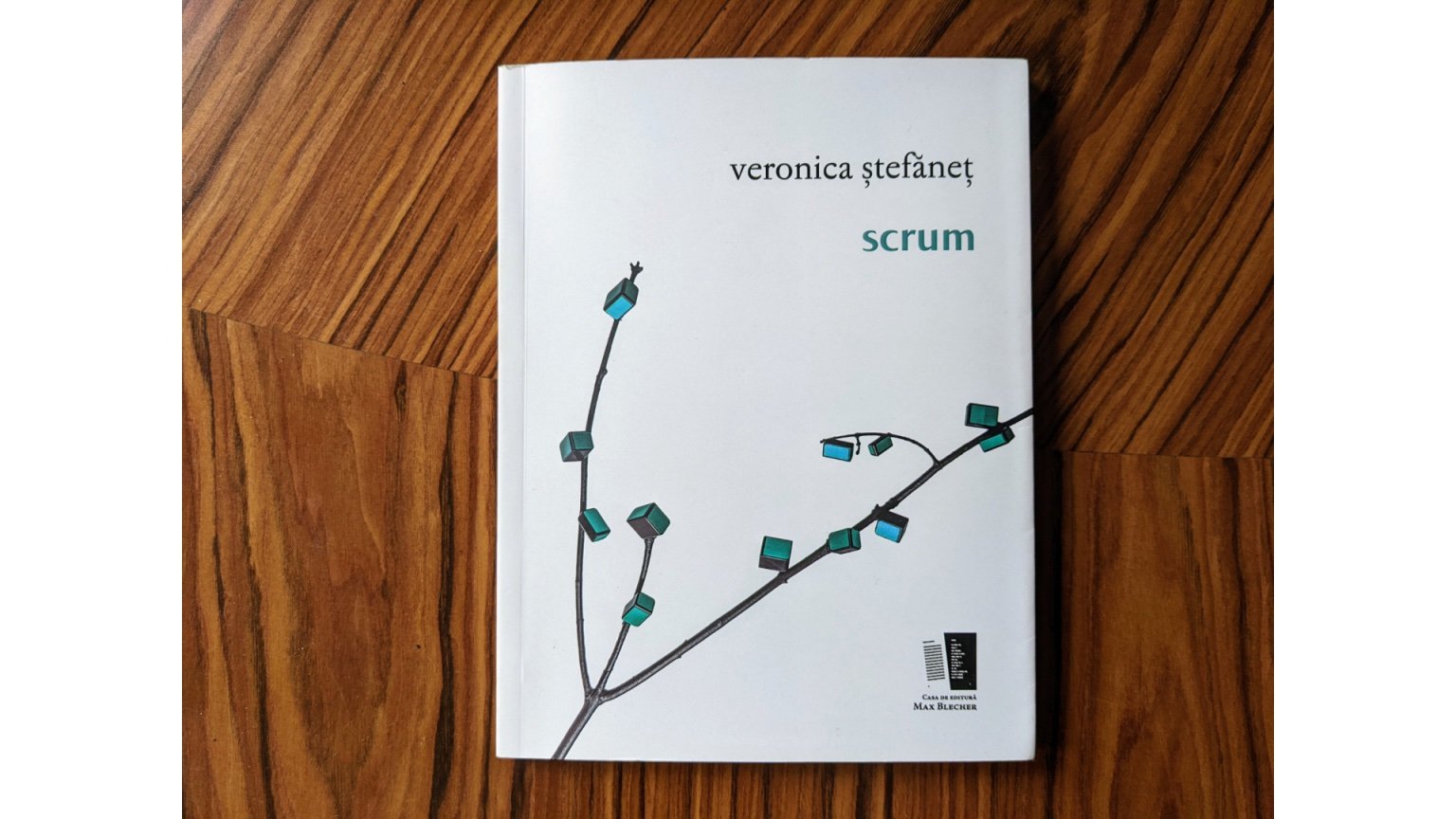The Most Beautiful Animal in the World
I already know what I’ll do. If Cedil doesn’t come back by the end of the year, I’ll go to my grandmother’s sitio. I’ll get a heifer, raise its calves, and ride around on my horse. Each day there’ll be plenty to do, and that’s better than hanging around here like a fool, dreaming about the island the rest of my life, remembering the games we used to play there, the things Cedil and Tenisão said, even the times we were terrified, like the day the raft almost sank with the three of us on it.
Abolition in Our Lifetime: A Conversation with Christopher Soto
Christopher Soto doesn’t mince words in his debut collection Diaries of a Terrorist, an eviscerating and urgent work of verse that calls for abolition of the police state. The Salvadoran poet and abolitionist was born, raised, and is currently based in unceded Tongva, Chumash, and Kizh land (Los Angeles, California). Soto has worked for years as a political organizer in various capacities, including co-founding Undocupoets and the national Writers For Migrant Justice campaign. His long-awaited collection sheds a harsh light on police brutality and state violence in the United States and beyond.
3 Poems by 이제니 Lee Jenny
In the end, it’s only the fluttering sound of falling leaves. Starting today, I’ll stop feeling remorseful. Starting today, I’ll stop feeling remorseful about my remorse.
60 for 60: The Heart Climbs Devilishly
This poem by Jane Miller was originally published in the third-ever issue of Columbia Journal, in 1979. When our wonderful archivist told me I would be selecting the final poem for our 60 for 60 project, I knew I wanted a poem that spoke to some kind of ending, one that evoked an urgency, a hurried farewell.
60 for 60: The Last Breath of Paul Celan
The poet Paul Celan died in 1970: he committed suicide by jumping into the Seine. In 2011, Columbia Journal featured “The Last Breath of Paul Celan” in its forty-eighth issue. Why publish a meditation forty years in the gestation? Poets never actually die, to their readers. What fellow poet Ryan Flaherty had to say is not irrelevant; and it is beautiful, too.
60 for 60: This Should Explain It
Published in the 2017 issue of Columbia Journal, Ottessa Moshfegh’s “This Should Explain It” sketches an imperfect mother to an imperfect daughter and spares neither from the harsh light of abjection that has become the hallmark of her work. Here, Moshfegh dredges the well of memory with ample quirkiness, pulling from it a tangle of grief, love, and strangeness that besets a daughter in the wake of her mother’s passing. In short: this should explain it.
Five Poems from “Journal of a Laborer”
June 24th. —The architect came back. I think of his blueprints. One afternoon I read through the boss’s copy: a true book. Everything is there.
60 for 60: Squatter in the House of the Lord
To a certain extent, much of 20th-century thought was taken up by argument about religious faith’s relevance or irrelevance, and this affected literature. T.S. Eliot, for example, wrote that poetry needs a religious tradition behind it in order to flourish. As I’m not a theologian—and I also don’t want to jump to any premature conclusions about the present century—I’ll leave that argument to one side. Since I’m a poet, though, I would venture to suggest that a writer runs a terrible risk if attempting to eliminate all non-rational belief from creative work. I would even recommend a healthy respect for superstitions. I don’t mean we should return to burning witches; but I do mean that a world without Halloween or its analogues would be rather boring. At least metaphorically, writing is a kind of magic, and anti-magical poetry would probably be an unsustainable gimmick.
60 for 60: Essay on Anxiety
In my family group chat, we’ve taken a break from sending each other memes and other funny pictures. It started with a text from my mom, expressing her anxiety about the ever climbing far-right voting rate in France. She lives in a rural area, and most villages around her massively voted for Marine Le Pen, an Islamophobic, conservative presidential candidate.
60 for 60: Love
On April 22, 1995, the highly-regarded American poet Jane Kenyon died. Accordingly, Columbia Journal dedicated a portion of its Spring 1996 issue to her memory. This homage included two poems by another highly-regarded American poet, Sharon Olds. The second of those two poems was written for Kenyon’s husband, Donald Hall, who was also a highly-regarded poet. And Olds’ poem “Love” is a great piece of work, and a fitting tribute to these poet-inspirations.
60 for 60: No Names
In Justin Taylor’s elegiac short story “No Names,” a narrator reflects on his ephemeral but meaningful connection with a deceased poet. His recollections coalesce around a single evening in which the narrator shared a table with the poet at a neighborhood bar, surrounded by fellow writers with whom they drank, chain-smoked, and chatted about nothing in particular.
Barebacking the Barback by Christopher Soto
We're his // Retired slut on food stamps // Forever
Sniffing horse tranquilizer // Seeing digital dreams
60 for 60: Seventy Times Seven
My initial reaction to Tracy K. Smith’s “Seventy Times Seven” was one of awe. To begin at the beginning, the title cannot help but remind one of Matthew 18:22. While Smith incorporates religious figures, including San Nicolas, the poem is nothing short of magical in its exploration of culture, spiritual awakening, and human emotions. In a lecture, Smith discussed the interconnections between faith and poetry. She said, “Like the language of spiritual awakening, poems seek to be living words—vehicles for transmitting a sense of the strange and the powerful from speaker to reader” (Smith, 2018). Thus poetry is a vessel that carries with it the energy and intentions set by the author.
Smuggling Bethlehem
I am no stranger to picking apples out of men's throats.
Atlanta
I'm tired of making amends with soon-to-be strangers.
Tired of being my mother's favorite stranger.
60 for 60: Portrait of the Poet as Augustus Egg
“I am tired of women who are sad. I am tired of / Men who are tired.” The end of April is a good time to be finished with feeling sad and tired. It’s springtime; the earth is singing; it’s still National Poetry Month. I’ve never seen the Thames, but I know it mythically, as all rivers are known.
Review: Yesterday by Juan Emar, Translated by Megan McDowell
It’s an exciting literary event when a translator resurrects a writer from the obscurity of the past. To our benefit, this is exactly what Megan McDowell does with her new translation of Juan Emar’s Yesterday (New Directions, April 2022), a novel whose wonderfully frustrating exploration of the difficulties of communication comes at a time when we are reconceiving our social relationships in a post-pandemic world. As Emar’s first substantial introduction to the American reading public—fifty-eight years after his death—Megan McDowell’s translation pays deft tribute to the levity, complexity, and despair of Emar’s prose, while maintaining the intellectual fortitude of a text that asks us to reconsider fundamental conceptions of identity that undergird both the popular novel and, by extension, our understanding of ourselves.
Fire Season: Selected Essays 1984-2021, by Gary Indiana
In Gary Indiana’s 1989 novel Horse Crazy, the narrator’s sociopathic crush finally shows him his first large-scale artwork: “an arrangement of six different male types: college preppie, Kennedy-type young lawyer, bohemian, blue-collar worker, and so forth.” The narrator soon realizes all six faces belong to Ted Bundy. “Such is the ambition of American society, that a person who runs out of control in this manner can effortlessly impress those he meets as a paragon of desirable national qualities.” Indiana is forever associated with his 1985-1988 run as art critic for the Village Voice, but he is primarily an artist, and the long bibliography of plays, films, visual art, and fiction he has produced since often focuses on people “out of control.” His best-known work is a trilogy of “deflationary realist” true-crime novels. Yet there is a difference between those who commit crimes of desperation, and those who act in the relentless pursuit of power and wealth, or, like Bundy, for no reason at all. In Fire Season, a voracious, scathing collection of Indiana’s reviews and essays, Indiana has dueling subjects: the cartoon villains of the neoliberal order, and the artists making serious work in spite of it.
Two Poems from Scrum
you grab the end of your girlfriend’s scarf and quickly sniff it
when she’s not at the table
I pick off the strands of hair caught on her coat when we go out

















































